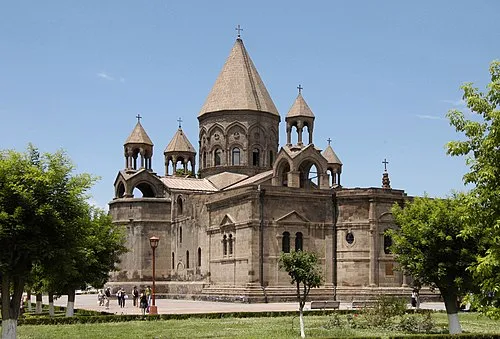
Nerses Glaietsi: A Luminary of the Catholic Church
Nerses Glaietsi, also known as Nerses the Gracious, holds a significant place in the history of the Catholic Church, particularly within the Armenian Apostolic Church. His life and work highlight a blend of deep spirituality and theological insight that continues to inspire countless believers around the world.
Early Life and Background
Nerses Glaietsi was born in 1102 in the region of Cilicia, which is now part of modern-day Turkey. He came from a noble family that was deeply involved in the Christian faith, providing him with a robust foundation that would guide his future endeavors. His early education was complemented by the rich traditions of Armenian Christianity, allowing him to develop a profound understanding of theology, philosophy, and literature.
His Role as a Theologian and Leader
Nerses Glaietsi became the Catholicos of the Armenian Apostolic Church in 1166, succeeding the renowned Catholicos Nerses IV. His tenure as Catholicos was marked by challenges, including political strife and external threats to the Armenian Christian community. However, Nerses was a pivotal figure during this tumultuous time, working tirelessly to unify the church and maintain its integrity amidst adversity.
Contributions to Armenian Christianity
One of Nerses Glaietsi's most significant contributions is his extensive theological work. He authored numerous hymns and liturgical texts that enriched the Armenian Church's liturgical life, making them accessible to the faithful. His poetry is characterized by its deep theological reflection and profound spirituality, making him a revered figure in Armenian literature.
Additionally, he is known for his efforts in promoting education and social welfare within the Armenian community. Recognizing the importance of knowledge, he established schools and institutions that nurtured the next generation of scholars and clergy. His vision extended beyond spirituality; he emphasized the need for moral ethics and social responsibility among his followers.
Nerses Glaietsi's Legacy
The legacy of Nerses Glaietsi is felt strongly in the contemporary Armenian Apostolic Church. His emphasis on education continues to resonate today, with many institutions named in his honor dedicated to theological education and social service. His hymns are still sung during church services, reminding worshippers of his poetic contributions and deep spirituality.
Moreover, he is celebrated for his role in interfaith dialogue, particularly with the Roman Catholic Church. His vision for unity among Christians serves as a guiding principle for modern ecumenical efforts, emphasizing the importance of collaboration in addressing contemporary societal challenges.
Conclusion
Nerses Glaietsi remains a cherished figure not only in the Armenian Apostolic Church but also in the broader context of the Catholic Church. His life's work, marked by theological scholarship, dedication to education, and a commitment to social justice, continues to inspire those who seek a deeper understanding of faith and community. His legacy serves as a reminder of the enduring impact of spiritual leaders on the journey of Christianity.






